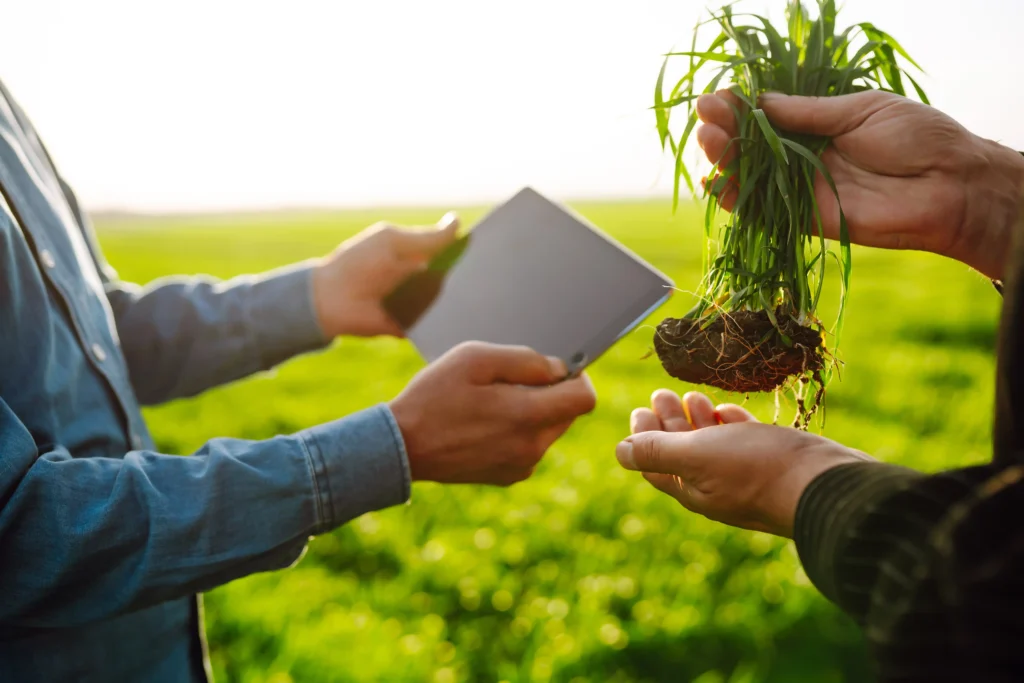 15 January 2025
15 January 2025Agro-Tech Trends to Watch in Africa
Africa’s agricultural landscape is undergoing a remarkable transformation, driven by innovative agro-tech solutions tailored to meet the continent’s unique challenges. From ensuring food security for a growing population to combating climate change, technology is reshaping farming practices across Africa. Here are the top agro-tech trends poised to make a significant impact in the coming years:
1. Precision Agriculture
Precision agriculture leverages technology to optimize farming practices by analyzing data from fields. Tools like GPS-guided tractors, drones, and satellite imagery allow farmers to monitor soil health, crop growth, and pest activity. By using data-driven insights, farmers can:
- Reduce waste by applying the right amount of water, fertilizer, and pesticides.
- Increase yields by identifying and addressing specific field needs.
- Save costs and improve sustainability.
2. Smart Irrigation Systems
Water scarcity is a pressing issue in many African regions, making efficient water management essential. Smart irrigation systems use sensors and IoT (Internet of Things) devices to monitor soil moisture and weather, ensuring water is used efficiently. These systems help farmers reduce water wastage and grow crops in arid areas where traditional methods may fail.
3. Mobile-Based Solutions
With mobile phone penetration rapidly increasing across Africa, mobile platforms are becoming critical tools for farmers. These platforms offer services such as:
- Access to real-time weather forecasts and market prices.
- Mobile banking for securing loans and receiving payments.
- Digital farming communities for knowledge sharing. Companies like M-Farm and iCow are empowering farmers with essential resources at their fingertips.

4. Blockchain for Supply Chain Transparency
Blockchain technology is revolutionizing the agricultural supply chain by ensuring transparency and traceability. This is particularly valuable for:
- Certifying the authenticity of organic and fair-trade products.
- Reducing fraud and ensuring farmers receive fair prices.
- Building trust between producers, distributors, and consumers.
5. Drones and AI-Powered Monitoring
Drones equipped with high-resolution cameras and sensors are enabling farmers to:
- Survey large areas quickly and efficiently.
- Detect issues such as pests, diseases, or water stress. When combined with Artificial Intelligence (AI), these tools provide actionable insights, helping farmers make informed decisions to maximize productivity.
6. Climate-Resilient Technologies
As climate change poses increasing risks to agriculture, technologies that enhance resilience are gaining traction. Innovations include:
- Developing drought-tolerant and pest-resistant crop varieties.
- Early warning systems for extreme weather events.
- Climate-smart farming techniques to mitigate environmental impact.
7. Post-Harvest Technologies
Post-harvest losses remain a major issue in African agriculture, often exceeding 30% in some regions. Agro-tech solutions addressing this challenge include:
- Solar-powered cold storage systems to preserve perishable produce.
- Hermetic storage bags to protect grains from pests and mold.
- Digital platforms connecting farmers directly to buyers, reducing middlemen and waste.

8. Agricultural Robotics
Though still in its early stages in Africa, agricultural robots are beginning to make an impact. These robots perform labor-intensive tasks such as planting, weeding, and harvesting, addressing labor shortages and improving efficiency on larger farms.
9. E-Learning Platforms for Farmers
Knowledge is power, and e-learning platforms are empowering African farmers with skills and information. These platforms offer:
- Tutorials on sustainable farming practices.
- Guidance on using agro-tech tools effectively.
- Courses on financial literacy and farm management.
10. Vertical and Urban Farming
With urbanization on the rise, vertical and urban farming is becoming a viable solution for food production in cities. Using technologies like hydroponics and aquaponics, these systems:
- Maximize production in limited spaces.
- Conserve water and reduce transportation costs by growing food closer to consumers.

Driving the Future of African Agriculture
The adoption of these agro-tech trends will require collaboration between governments, private sectors, and farmers. Policies that support innovation, investments in infrastructure, and training programs for farmers will be key to unlocking the potential of these technologies.By embracing these trends, Africa can not only address its agricultural challenges but also emerge as a leader in sustainable and tech-driven farming. The future of African agriculture is bright, and the seeds of transformation are already being sown.


